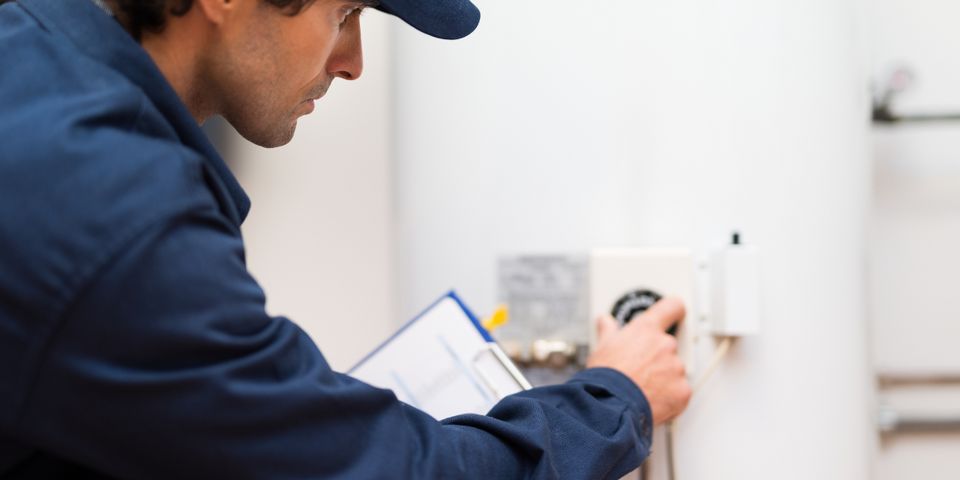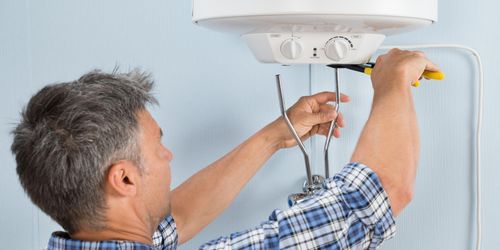Coping with the Chief Water Heater Crisis Events
Coping with the Chief Water Heater Crisis Events
Blog Article
Do you find yourself on the lookout for additional info concerning Common Hot Water Heater Problems?

A hot water heater is just one of one of the most vital basic home appliances that can be discovered in a residence. With hot water heater, you do not need to experience the stress and anxiety of home heating water by hand each time there is a requirement to wash, do the laundry, or the dishes. There is always a possibility that your water heater would certainly act up as with many mechanical devices.
It is very important to note any type of little malfunction and also tackle it quickly before points leave hand. Most times, your water heater begins to malfunction when there is an accumulation of sediments as a result of constant use. As a preventative measure, routine flushing of your water heater is advised to stop sediment accumulation and also stop practical failure.
Typical water heater emergency situations as well as exactly how to take care of them
Leaky water heater storage tank.
A leaking container could be a sign of rust. It can create damage to the floor, wall surface and electric tools around it. You could also go to threat of having your home flooded. In this scenario, you need to shut off your hot water heater, allow it to cool, and also very carefully seek the source of the problem. At times, all you need to do is to tighten a few screws or pipeline connections in cases of minor leaks. If this doesn't function and the leakage continues, you could need to utilize the services of a professional for a suitable replacement.
Changing water temperature.
Your water heater can begin creating water of different temperature levels usually ice scalding or cool hot. There might be a requirement to change either the thermostat or the heating system of your water heating system.
Insufficient warm water
It might be that the water heating unit can't sustain the hot water demand for your house. You could update your water heater to one with a larger ability.
Blemished or smelly water
When this occurs, you require to understand if the issue is from the container or the water source. If there is no amusing odor when you run cold water, after that you are specific that it is your water heater that is defective. The odiferous water can be caused by corrosion or the buildup of germs or sediments in the water heater storage tank. When you notice this, you can attempt flushing out your container or replacing the anode if the issue persists. The feature of the anode is to clean out microorganisms from your tank. Because the anode rod substitute calls for an extensive knowledge of your water furnace, you will certainly require the assistance of a professional.
Verdict
Some house owners neglect little warning and minor faults in their hot water heater system. This just brings about further damage and also a feasible complete break down of your device. You should take care of your hot water heater faults as quickly as they come up to prevent even more expenditures and also unnecessary emergency difficulties.
With water heaters, you do not require to go via the anxiety of heating water manually every time there is a demand to take a bathroom, do the washing, or the dishes. Your water heater could begin generating water of different temperature levels usually ice hot or cool warm. It may be that the water heating unit can not sustain the hot water demand for your apartment or condo. If there is no funny smell when you run chilly water, then you are certain that it is your water heating unit that is defective. The stinky water can be triggered by rust or the buildup of germs or sediments in the water heating system tank.
Common Water Heater Issues and What You Should Do
What Type of Water Heater Do You Have?
Before we begin it’s first important that you identify the type of water heater you have on your property. There are two main types of water heaters out there: conventional and high efficiency.
Both of these types of products typically use either gas or electricity to heat power. There are also solar water heaters that use a thermal collector on the roof or yard to heat the water.
While these models are not as common, they can cut heating costs in half. In this article, we will focus on conventional and high efficiency.
How Do My Electric and Gas Water Heater Work?
Though they look similar, electric and gas water heaters work very differently. It’s important to know their basic function because often problems can be specific to the heating source.
In the electric model, a thermostat on the side of the machine detects the temperature of the water in the tank. When the temperature needs to rise electricity flows to a heating element suspended in the water.
Gas models also use a thermostat device — typically with a mercury sensor at the tip and an additional sensor called a thermocouple. The thermocouple detects whether the pilot light is on and controls the flow of gas.
When the thermostat drops below the appropriate level gas is released which becomes ignited by the pilot light. The flame heats the bottom of the water tank which causes hot water to rise and cold water to drop.
This natural circulation continues until the water reaches the desired temperature. Then, the thermostat triggers the gas control valve to shut off the flow of gas.
What Are the Most Common Issues and How Do You Fix Them?
https://happyhiller.com/blog/common-water-heater-issues-and-what-you-should-do/

Do you enjoy reading about Is Your Water Heater Leaking?? Try leaving feedback directly below. We would be interested to know your feelings about this blog posting. We hope that you come back again in the future. Sharing is good. You never know, you will be helping someone out. We take joy in reading our article about The Importance of Water Heater Maintenance.
Get Your Estimate Now Report this page